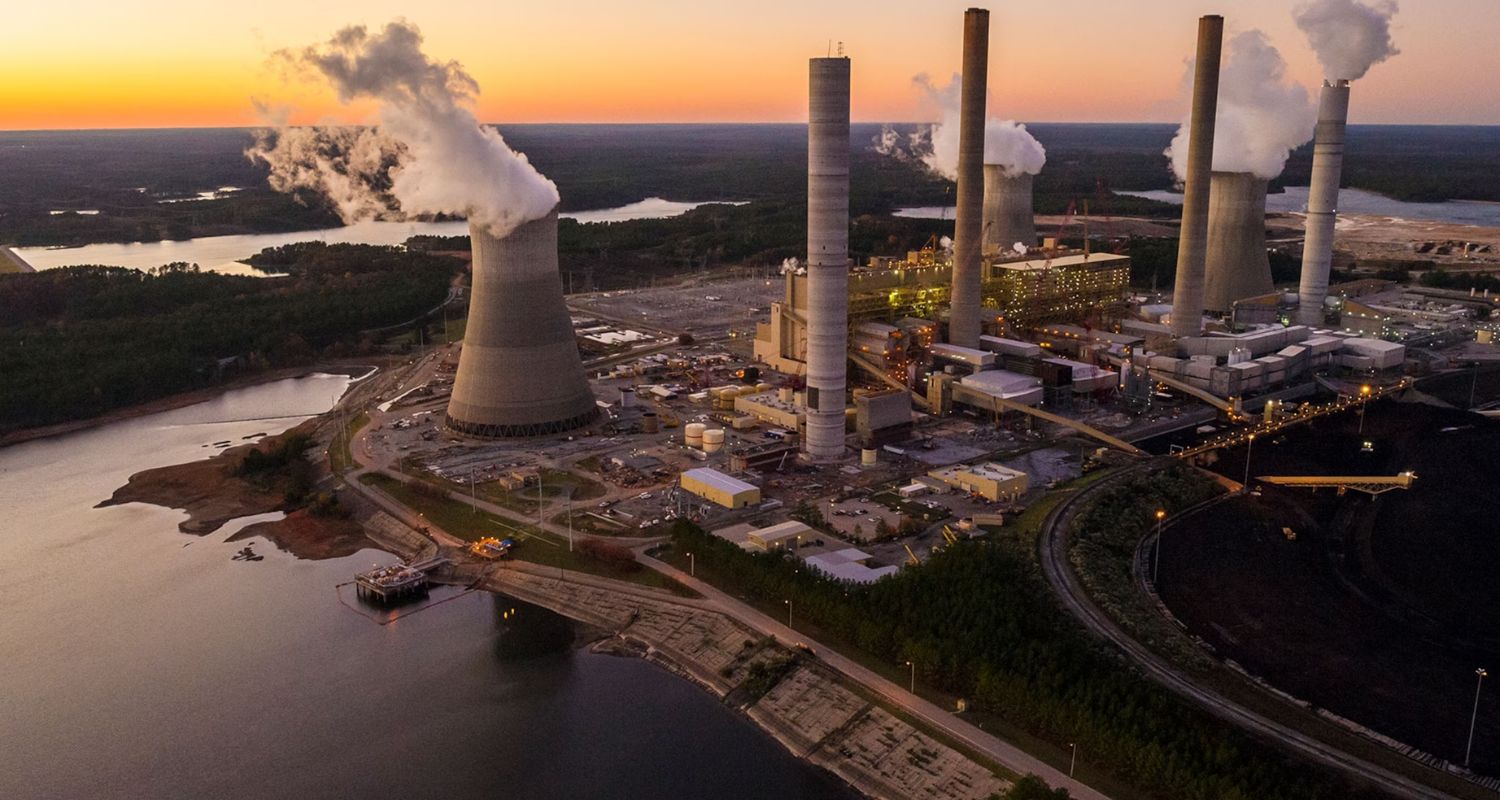Cryptocurrencies have become a hot topic of discussion in recent years, with Bitcoin leading the pack. One emerging area of concern is the link between Bitcoin and climate change. This article aims to delve deep into this link and shed light on its different associated aspects.
See Also: How To Calculate Crypto Profits | Quick And Easy Ways
Table of Contents
Understanding Bitcoin and Its Mechanisms
Before we explore the environmental implications of Bitcoin, it is essential to have a clear understanding of what Bitcoin is and how it functions.
Bitcoin is a decentralized digital currency that operates on a technology known as the blockchain. This technology enables secure and transparent transactions without the need for intermediaries like banks or governments.
Speaking of Bitcoin, it’s interesting to delve into its review as it grapples with the summer slump, shedding light on the challenges and fluctuations in its market performance. But how exactly does Bitcoin work? Let’s dive into the basics.
The Basics of Bitcoin
Bitcoin was created in 2009 by an anonymous individual or group using the pseudonym Satoshi Nakamoto. It is based on a peer-to-peer network, allowing users to send and receive funds directly without the involvement of third parties.
Transactions in the Bitcoin network are verified by network nodes through cryptography and recorded on a public ledger known as the blockchain. This ledger ensures that all transactions are transparent and cannot be altered or tampered with.
Before further discussing the Link Between Bitcoin and Climate Change, let’s explore what makes blockchain technology so special. Let’s take a closer look.
The Blockchain Technology
Blockchain technology is the backbone of Bitcoin, providing a decentralized and tamper-proof system. It works by grouping transaction data into blocks linked together in chronological order, forming a chain.
Each block contains a unique identifier, a timestamp, and a reference to the previous block. This ensures the integrity and immutability of the entire transaction history. But how are these blocks created and added to the chain? Let’s explore the process.
When a user initiates a Bitcoin transaction, it is broadcasted to the network and verified by network nodes called miners. These miners compete to solve complex mathematical puzzles, and the first one to solve them adds a new block to the chain.
This process, known as mining, requires significant computational power and energy consumption. Miners are rewarded with newly minted Bitcoins for their efforts, incentivizing them to continue securing the network.
Once a block is added to the chain, it becomes a permanent part of the Bitcoin transaction history. This decentralized nature of the blockchain ensures that no single entity can control or manipulate the system.
As you can see, Bitcoin and its blockchain technology have introduced a new way of conducting secure and transparent transactions. Understanding the basics of Bitcoin, the blockchain, and the potential impact of Quantum AI is crucial for comprehending its environmental implications, which we will explore further.
Quantum AI’s influence on this evolving landscape adds another layer of complexity to the discussion. Additionally, exploring the Bitcoin format for Yahoo in 2024 becomes crucial in understanding how technological advancements intersect with the financial world, shaping the future of digital currencies and their integration into mainstream platforms.
The Environmental Impact of Bitcoin Mining
Now that we understand the basics of Bitcoin, let’s shift our focus to the Link Between Bitcoin and Climate Change, its environmental footprint, primarily driven by the process known as mining.
Bitcoin mining involves solving complex mathematical problems to validate transactions and add them to the blockchain. This process requires substantial computational power, which translates into a significant energy demand.
According to research, the annual energy consumption of the Bitcoin network is comparable to that of some small countries. This reliance on energy has raised concerns about the sustainability and environmental impact of Bitcoin.
But what exactly does this mean for the environment? Let’s delve deeper into the energy consumption and carbon footprint of Bitcoin mining.
Energy Consumption in Bitcoin Mining
As mentioned earlier, Bitcoin mining requires a massive amount of computational power. This computational power is provided by specialized hardware called mining rigs, which are essentially powerful computers designed solely for mining purposes.
These mining rigs consume a significant amount of electricity. In fact, the energy consumption of a single mining rig can be comparable to that of an average household. Now imagine thousands, if not millions, of these rigs, running simultaneously in mining farms worldwide.
To put things into perspective, the Bitcoin network’s energy consumption in a single year can exceed the energy consumption of entire countries. This staggering amount of energy usage has raised concerns about the sustainability of Bitcoin mining.
But it’s not just the energy consumption that raises eyebrows. The source of this energy is equally important.
Carbon Footprint of Digital Currencies
In our discussion of the Link Between Bitcoin and Climate Change, we’d be remiss if we didn’t acknowledge the high energy consumption; Bitcoin mining is notorious for its carbon footprint.
Furthermore, most of the electricity used in mining comes from non-renewable sources such as coal and natural gas, which release greenhouse gases into the atmosphere.
These greenhouse gases, including carbon dioxide and methane, contribute to global warming and climate change. Also, the more Bitcoin mining occurs, the more greenhouse gases are emitted into the atmosphere, exacerbating the critical climate crisis.
A study conducted by researchers estimated that Bitcoin’s carbon footprint alone could contribute to global warming by several degrees Celsius over the next few decades. This alarming projection highlights the urgent need to address the environmental impact of Bitcoin mining.
Additionally, efforts are being made to mitigate the carbon footprint of Bitcoin mining. Some mining operations are exploring the use of renewable energy sources such as solar and wind power. However, the transition to renewable energy is not without its challenges.
In conclusion, the environmental impact of Bitcoin mining is significant and cannot be ignored. The energy consumption and carbon footprint associated with mining raise concerns about the sustainability of this digital currency.
Bitcoin’s Role in Climate Change
As Bitcoin continues to gain popularity, the Link Between Bitcoin and Climate Change cannot be ignored. Let’s delve deeper into how Bitcoin mining interacts with greenhouse gas emissions and its potential long-term effects.
Bitcoin Mining and Greenhouse Gas Emissions
The energy-intensive process of Bitcoin mining directly contributes to greenhouse gas emissions. Also, the burning of fossil fuels for electricity generation releases carbon dioxide, methane, and other harmful gases into the atmosphere.
Also, considering the exponential growth of the Bitcoin network, it is evident that the carbon emissions associated with mining will only increase unless significant changes are made.
The Potential Long-Term Effects
Bitcoin’s environmental impact could severely affect our planet’s climate if left unchecked. Rising temperatures, extreme weather events, and biodiversity loss are among the many challenges we already face due to climate change.
While Bitcoin is not solely responsible for these problems, its contribution to carbon emissions adds to the urgent need for sustainable solutions.
The Debate Around Bitcoin and Sustainability
The discussion surrounding the Link Between Bitcoin and Climate Change and Bitcoin’s environmental impact and sustainability is complex and often heated. Let’s explore some of the arguments put forth by both sides of the debate.
Arguments for Bitcoin’s Environmental Impact
- Those concerned about Bitcoin’s environmental impact argue that the energy consumption and carbon emissions associated with mining are simply too high.
- Furthermore, they highlight the need for immediate action to mitigate these effects and promote greener alternatives in the cryptocurrency realm.
Counterarguments and Criticisms
- On the other hand, proponents of Bitcoin argue that traditional financial systems also consume vast amounts of energy, and cryptocurrencies offer benefits such as increased financial inclusivity and reduced reliance on centralized institutions.
- Additionally, they believe that technological advancements and adopting renewable energy sources could address environmental concerns.
Possible Solutions and Alternatives
While the debate around Bitcoin’s sustainability continues, efforts are being made to find solutions and explore alternative approaches to minimize its environmental impact.
Energy-Efficient Cryptocurrencies
- One potential solution lies in the development and adoption of energy-efficient cryptocurrencies.
- Several projects are already underway, aiming to utilize more sustainable consensus mechanisms that require less energy.
Regulatory Measures and Their Impact
- Another way to address the environmental impact of Bitcoin is through regulatory measures.
- Moreover, Governments and governing bodies can impose stricter regulations on mining operations, promote renewable energy use, and incentivize sustainable practices in the cryptocurrency industry.
FAQs
What is the basic mechanism of Bitcoin?
Bitcoin operates as a decentralized digital currency using blockchain technology. It enables secure and transparent transactions without intermediaries like banks.
How does Bitcoin mining contribute to climate change?
Bitcoin mining, which involves solving complex mathematical problems, demands significant energy consumption. The carbon footprint arises from the use of non-renewable energy sources, contributing to greenhouse gas emissions.
Can Bitcoin's environmental impact be mitigated?
Efforts are being made to explore renewable energy sources for mining operations. However, the transition faces challenges, and the overall sustainability of Bitcoin remains a concern.
What potential long-term effects does Bitcoin's environmental impact pose?
Bitcoin's contribution to greenhouse gas emissions could exacerbate climate change, leading to rising temperatures, extreme weather events, and biodiversity loss. Addressing its impact is crucial for a sustainable future.
Are there alternative cryptocurrencies addressing energy efficiency?
Yes, there are ongoing projects focusing on developing energy-efficient cryptocurrencies with sustainable consensus mechanisms. These aim to reduce the environmental impact associated with traditional mining.
Conclusion
In conclusion, the link between Bitcoin and climate change cannot be ignored. Also, Bitcoin’s energy consumption and carbon footprint pose significant challenges to our planet’s sustainability.
Additionally, stakeholders must come together to explore innovative solutions and adopt sustainable practices to ensure that the benefits of cryptocurrencies do not come at the expense of our environment.
See Also: 5 Best Crypto Alert Apps In 2024 For Crypto Trading







